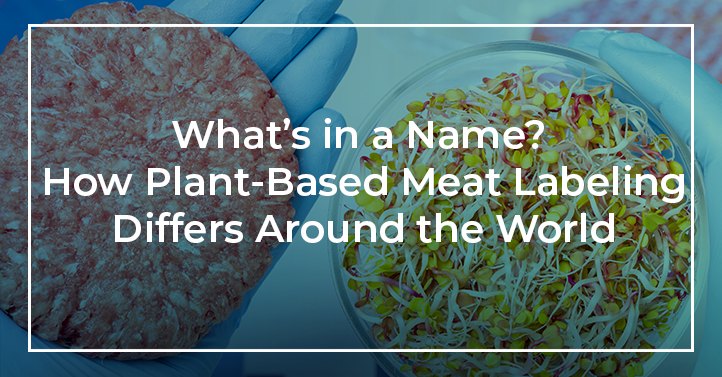Product labeling has been the major bottleneck for the plant-based meat industry — as manufacturers around the world strive to ensure that their products are easily identifiable and appealing to consumers, countries are wrangling over exactly how those items can be described. Here’s how product labeling requirements vary by region:
| Europe |
In April 2019, the European Parliament’s Committee on Agriculture and Rural Development sought to restrict the use of meat descriptors such as “burger,” “steak,” and “sausage” to apply only to products that are derived from animals and not from plants. As per supporters of this proposal, the change is important to make sure consumers have access to clear information. |
| China |
In September 2019, the first industry-standard and regulation symposium on meat alternatives was held by the China Plant-Based Foods Alliance (CPBFA) in Beijing. During the gathering, a unanimous agreement was reached that the “meat alternative industry will enter a stage of rapid growth and create a considerable impetus to agricultural and the general food industry.” |
| Japan |
Meat analog regulations are still in their early stages in Japan. The regulatory responsibility of meat analog is not yet assigned to any single authority; however, a single regulatory agency could be created in the future. |
| India |
As of now, there are no standard rules and regulations for plant-based meat products in India. Plant-based meat products such as burgers and sausages are new to the Indian food market, with companies such as Good Dot supplying such products. It is likely that many plant-based meat players will enter the Indian market in the near future, and government bodies will have to set a standard set of rules and regulations. |
Kline serves the entire value chain in the food and nutrition industry, from raw materials to end-use markets. For more insights, refer to our already published report, Plant-Based Meat: Processing Alternatives and Ingredients Assessment, presenting a market overview, data on the science and technology behind plant-based meat analogs, producer profiles, and an ingredients assessment.

